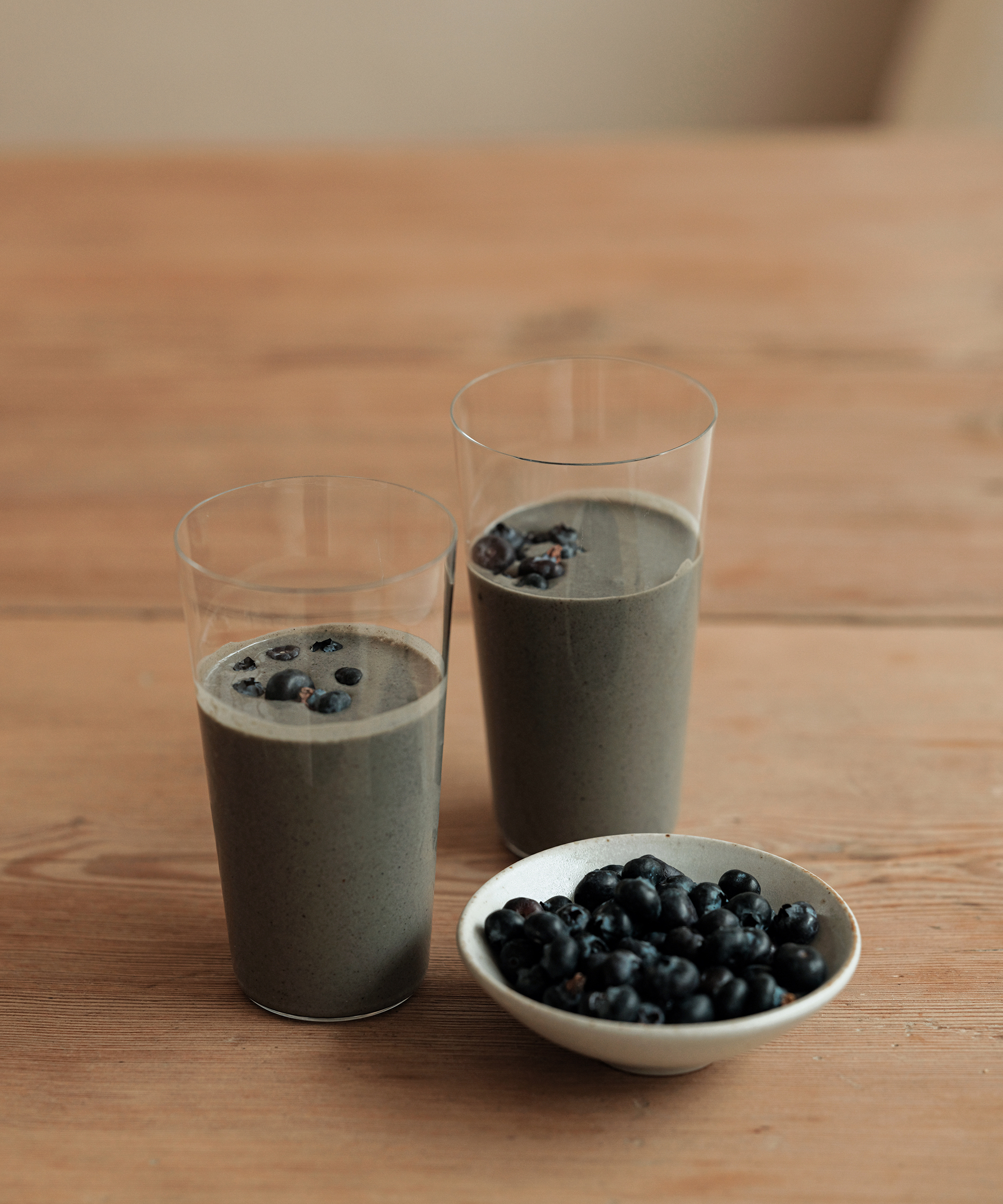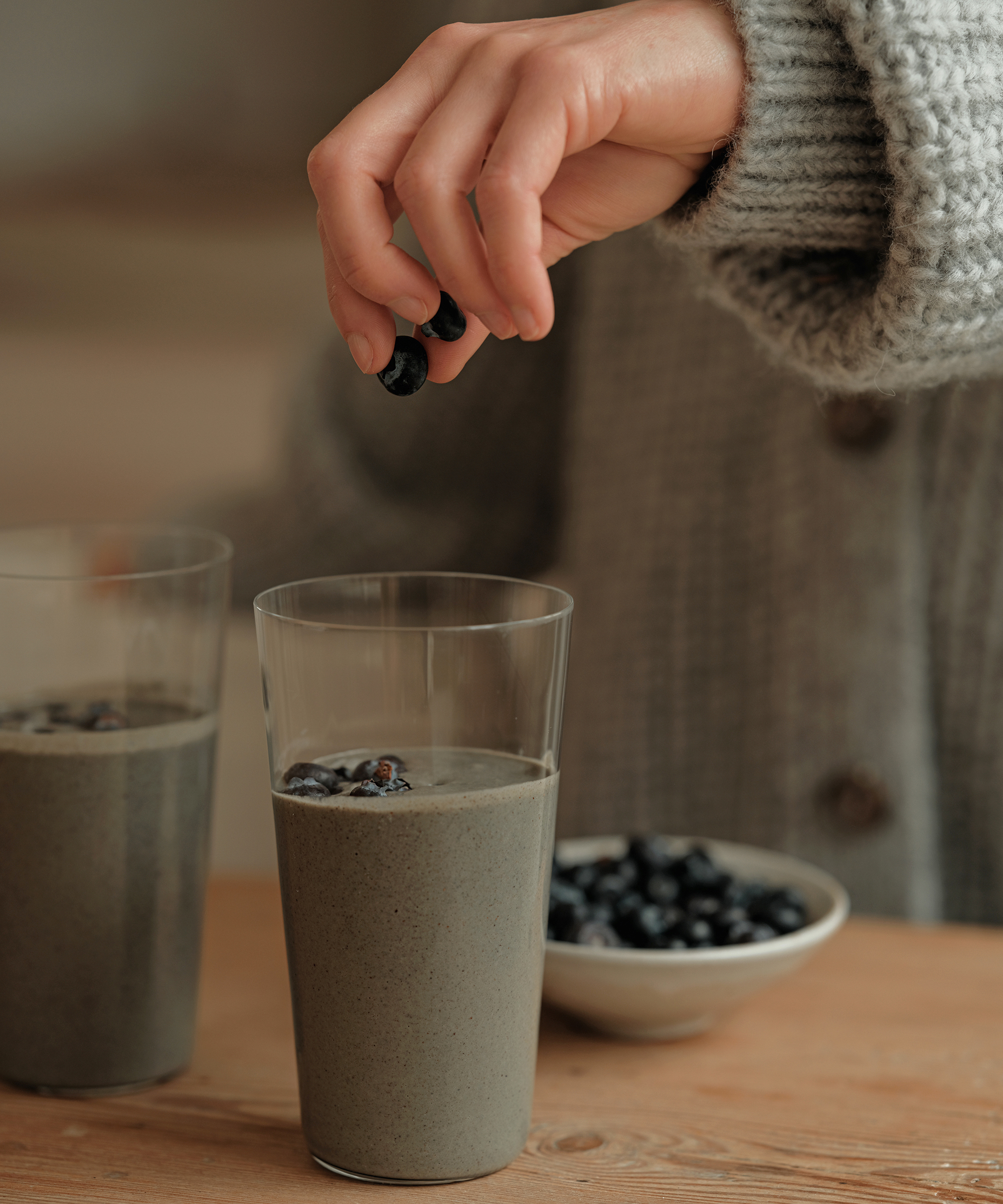Balance Your Hormones Naturally with Holistic Health Coach, Courtney Levin
Translation missing: en.blogs.article.author_on_date_html
Food & Drink
Balance Your Hormones Naturally with Holistic Health Coach, Courtney Levin
April 13, 2023
In our pursuit of a life lived better each day, it can easily become overwhelming to sort through what feels like a constant barrage of new information—try this supplement, incorporate this practice, and so on. So we went to holistic health coach Courtney Levin for a bit of calming clarity on the one topic we’re often most stumped by—balancing our hormones. What does it mean? Why do we need it? Driven by personal experience and guided by simplicity, Courtney’s passion for this specific aspect of health and wellness knows no bounds. So, of course, she was generous enough to answer all our most pressing queries—as well as share the hormone-balancing smoothie recipe she swears by.

Balance Your Hormones Naturally with Holistic Health Coach, Courtney Levin
Rip & Tan: Having been diagnosed with Hashimotos, celiac disease, and PCOS, balancing your hormones was first and foremost a personal undertaking—can you tell us more about that journey? What inspired you to make it your professional mission as well?
Courtney Levin: I was in my early 20s when I was diagnosed with Hashimotos. I had thought that being tired all the time was normal—it’s not! It was actually because of my thyroid condition that I ended up being diagnosed with celiac (thyroid issues and celiac tend to go hand in hand). My body wasn’t absorbing my medication, so we did a blood test for celiac and it came back positive.
Still, I didn’t really start to connect the dots until I went off birth control and found out I had PCOS. I wasn’t getting a period, and the fear of not being able to have kids when I wanted to was enough for me to look deeper. I rejected going back on the pill at my doctor’s suggestion and started researching everything I could about treating PCOS through nutrition and lifestyle. I went on a popular hormone balancing diet and began exercising a ton, but still no period. Internally, because I now had so many food rules, I was also overcome by food fears, which I now know people with PCOS are at a higher risk of developing.
A traumatic event jolted me out of this black and white thinking and helped me to stop being so strict with myself, which of course, is when my period returned (all in all it took about a year). Through this experience, I was able to discern what was working for me given what I’d learned, and what wasn’t. That led to taking a more gentle approach to my overall nutrition and health.

Rip & Tan: For anyone who may be unfamiliar, what does it mean to naturally balance your hormones? Why do they need balancing?
Courtney Levin: Hormones are chemical messengers that help regulate a number of our body’s systems—and when one hormone is off, it becomes very hard to achieve any kind of homeostasis. Usually, when we talk about hormone balancing we’re referring to estrogen, progesterone, and testosterone—but cortisol, insulin, and thyroid hormones are all important players within this spectrum, too.
The traditional way to treat a hormone imbalance is by taking prescribed synthetic hormones. Naturally balancing your hormones means getting to the root cause of your symptoms and after identifying the issue (for instance, say you discover you’re estrogen dominant), using nutrition and lifestyle to treat it.
Rip & Tan: What are some signs our hormones may be in need of more specific attention?
Courtney Levin: Painful, missing or irregular periods are telltale signs. More general symptoms are unexplained weight gain, acne or other skin issues, trouble sleeping, fatigue, brain fog, and digestive issues like constipation and bloating. If you suspect you have a hormonal imbalance, I always suggest getting a hormone panel done and then working with someone like me to help you get things back on track.
Shop the Story
Rip & Tan: Let’s talk about proteins and healthy fats. What’s one of the biggest misconceptions around these two macronutrients? How can we more easily incorporate them into our daily meals?
Courtney Levin: The biggest misconception when it comes to healthy fats is that they’re going to make you fat, but our brains are mostly made up of fat and there are certain vitamins that are only fat soluble, meaning there must be the presence of fat in our diet in order for us to properly absorb those nutrients. They also help with hormone synthesis. Proteins are comprised of amino acids which are the building blocks for making new cells and hormones, so it’s important to choose the highest quality protein sources you can and make sure you’re getting enough at meal times.
Some of my favorite ways to incorporate healthy fats and protein into my diet are by adding collagen protein, nut butter or chia, and flaxseeds to my smoothies in the morning. I love adding nuts, seeds, avocado, tinned salmon, and sardines to things like salads and toast, too. I’m also pro “throw an egg (or two, or three) on it” when it comes to meals. If you’re more plant based, legumes like lentils are really versatile. Spirulina is also a great way to sneak in some extra protein!


Rip & Tan: Diet culture has been so pervasive in so many of our lives—in what ways can we actively combat the constant barrage of messaging while being gentle with ourselves?
Courtney Levin: I tell my clients to have a sign off time each night and encourage them not to go on social within the first 30 minutes to an hour of waking up. But the biggest thing is becoming aware of these negative thoughts when you have them, which is a skill that can take some time to develop. Practicing some of the principles of Intuitive Eating, which is a great book written by two nutritionists is another tool I find extremely beneficial. When you start honoring your hunger and fullness cues and getting in touch with what you actually like to eat and what makes you feel your best.
Rip & Tan: You’ve spoken about how important stress management is in the process of rebalancing hormones. Why is that? Do you have any go-to tips?
Courtney Levin: When you’re running on stress hormones, your blood sugar spikes and can impact hormone balance. When we’re constantly stressed and experiencing blood sugar spikes and drops throughout the day—that can lead to insulin resistance, which contributes to PCOS and the like. On a larger scale, you need a regulated nervous system for all aspects of health. Cutting back on caffeine can go a long way with nervous system regulation. Cutting back on sugar will help with this, too, because sugar is a stimulant. And of course, finding activities that ground and center you will help a lot.
Photos by Bliss Kaufman





